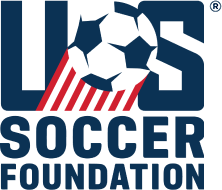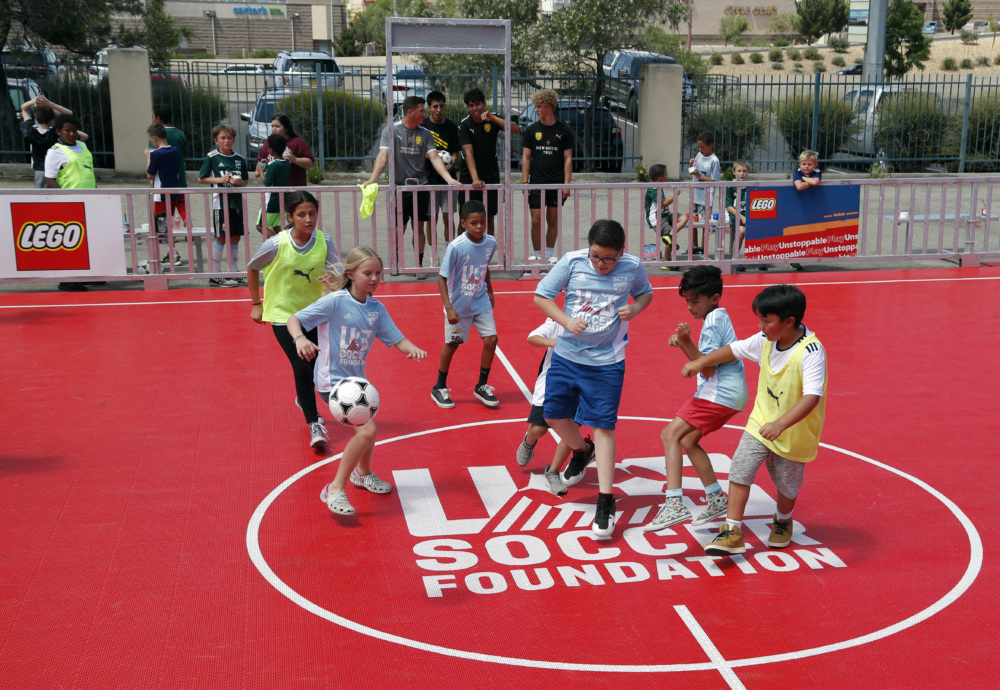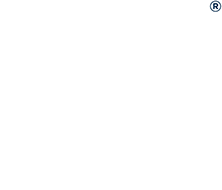

Let soccer do what soccer does.
Together, we can give millions of kids from underserved communities safe places to grow, thrive and build confidence for life.
A Look Back on the 2018 Soccer for Success National Training
Every summer, individuals from across the country travel to Washington, D.C. for a four-day event to learn the new Soccer for Success curriculum. Through a combination of on-field demonstrations, activities, and classroom-style learning, these individuals become certified to train Soccer for Success coach-mentors back in their communities.
This year, there were over 130 individuals representing 46 Soccer for Success programs across the country in attendance at National Training. With the guidance of about 25 Facilitators, they returned to their communities ready to train roughly 5,000 coach-mentors who will strive to make a lasting positive impact on 100,000 youth in the 2018-2019 program year.
On the opening day of National Training, U.S. Soccer Foundation President & CEO, Ed Foster-Simeon, delivered opening remarks on the Foundation’s push to make soccer a sport that is accessible to all. The success of National Training, he explained, would have an enormous effect on the Foundation’s ability to reach children in underserved communities through soccer. “Last year we served 45,000 children nationally in Soccer for Success. This year, at the end of the school year, we served over 70,000 children. Next year, it will be 100,000 children,” he explained to the group. “You’re part of a national movement and when we talk about these big numbers, it all starts here, with you. None of those numbers are achievable without you.”

For the first part of the day, Facilitators began to teach the curriculum and soccer fundamentals of putting on a local training to National Training participants. Later that day, participants learned about teach-backs (a mechanism through which participants get to test and get feedback on their drills) and started to participate in their own.
Within the first day, Rezzi of Detroit PAL had already taken note of 10 new tactics and activities that she had learned and was excited to bring back to her community. “I always go home with so much new information,” she says. “Everyone here is a leader in their field and getting all that input from different people is great…It’s great to come together with these great minds that work in soccer.”
Rezzi’s colleague, Mikyle, was especially fond of this year’s emphasis on best practices for showing empathy. “I really like the new empathy piece. The empathy piece is so good, I actually use it with my wife…It’s really helped my marriage out believe it or not.”
Day two kicked off with a “Facilitation Frenzy,” wherein participants learned best practices for hosting and executing a local training and participated in the first round of teach-backs.

“I loved it because of the vulnerability level that we all had,” says Adrian from Think Together of the teach-backs. “To see everybody else at that same level was encouraging.”
Chris of Detroit PAL says that teach-backs were his favorite part because they “gave me a chance to try the curriculum [and] it gave me a chance to work with some other people and get some feedback. Also, most of us don’t want to sit around all day. We want to get involved and get out there and do it…There’s a little bit of adrenaline going because you got to step in front of your peers and do it, but once you get going, it’s a great experience. And for new coaches it’s wonderful because they just feel that much more comfortable with everything.”
But Adrian and Chris are not the only ones who recognize the power of teach-backs. “I’ve always been a hands-on kind of person,” explains National Training first-timer Jason of West Virginia 4-H, “So if you actually let me do it, I’m more engaged and I learn it quicker. I think it’s really great how they…let you learn the curriculum by doing.”

The day closed with a soccer tournament where the likes of France and Croatia were replaced with powerhouses like team Passion Fruit, Tangy Ginger, and Chilling Watermelon during the World Cup of Nutrition. All teams were victorious!
Throughout the day on Saturday, participants addressed training modules for how to host a local training, including “the coach-mentor blueprint,” “planning for success,” and “transition and closure.” More participants led their own teach-backs on the Ellipse with views of the Washington Monument, and at the end of the day, groups presented their team cheers in the annual Cheer Off.

On the final day of National Training, participants heard from Alex Bard, grants and compliance manager at the U.S. Soccer Foundation, and Josh Opiola, risk management director at SportsEngine, to learn more about the implications of the Safe Sport Act. The presenters provided an in-depth look into the world of background screening, abuse awareness training, and appropriate player-coach conduct.

At the end of National Training, participants were presented with graduation certificates, marking their completion of the National Training and gaining official accreditation to host local trainings back in their communities. To round out the weekend, all participants, staff, and facilitators came together to watch the World Cup final.
Our 2018 Soccer for Success National Training graduates will play a key role in the Foundation’s effort to make soccer #EveryonesGame. Learn more about our goals at itseveryonesgame.org.
